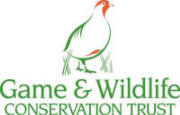Articles and Features


Library of in depth features covering a wide range of subjects across the many different areas of the countryside, conservation, wildlife sectors as well as looking at careers and how to get a job. Many articles are written exclusively for CJS. Some articles were originally sourced for CJS Focus, others have been written exclusively for CJS by our
Featured Charities, you'll also find
profiles of relevant organisations and charities.
There is a wealth of information from across many different areas. This page has the most recently published articles and features, to view the full index of features covering several years click here.
Click on the article title to read or here to use the search function.
Please note that the full CJS Focus edition is a PDF download of the original publication and therefore contains all the adverts, many of these may now be out of date and we ask you to proceed with caution if you're following up any of these.

Whilst on a visit to a zoo or an aquarium, you might be surprised to see people volunteering their time to enhance the visitor experience, gardening or getting involved with animal care. In fact, across Britain there are thousands of people, giving their time as volunteers in zoos and aquariums. The wonderful thing about volunteering for a zoo or aquarium is the diverse ways people can contribute their skills and time. Depending on the organisation, volunteers can get involved with a wide range of activities from visitor engagement, youth volunteering, education volunteering, animal and plant care, gardening, conservation action, research, the opportunities can be endless.

Science and data are at the core of The Rivers Trust’s mission. Our work in passionately advocating for rivers and the communities who care for them is built on foundations of robust, reliable evidence. This ethos is not just about our team of self-affirmed nerds crunching numbers. It’s also about putting those numbers in the hands of the public so they can understand it and join us in using it to demand better for our waterways. Our best-known campaigns all centre around data – the Sewage Map, the State of Our Rivers Report, and the Big River Watch are just a few examples. Before talking about these data-driven campaigns, let’s share an insight into the work life of one of our Senior Technical Analysts, Dr Josh Jones.

Since the early part of this century light pollution has been increasing, especially in the Western Europe and North America. Latterly, this has been followed by Developing Countries as they try to emulate the West. Streetlight luminaires were primarily high pressure sodium, which gave an orange glow and mercury emission (or metal halide), which gave a blue-white light. Both types of streetlight were expensive to install, run and replace. In addition dead mercury luminaires were classed as hazardous waste and their disposal was problematic and expensive.

Firstly, let me introduce myself, my name is Sarah and I currently
work as a Visitor Centre Officer for Natural Resources Wales (NRW). NRW
has several visitor centres throughout Wales, I work at Bwlch Nant yr
Arian Visitor Centre in Mid Wales. I started my journey at this site in
2010 as a Visitor Centre Assistant. The site was managed by Forestry
Commission Wales at that time, which has since merged into the
relatively new organisation, Natural Resources Wales.

The UK’s 15 National Parks – from the highlands of Scotland to the rolling hills of the South Downs and rugged coastline of Pembrokeshire Coast – have a huge role to play in tackling the climate, nature and biodiversity crises. From restoring peatland and creating woodland, to engaging people with taking action for nature and developing and supporting sustainable travel.

Professor Ross Cameron from the University of Sheffield’s Department of Landscape Architecture discusses why innovative Managers are essential for viable, multi-functional landscapes and why an MA in Landscape Management might be your next, best step. I have always thought that professional Landscape Managers should have been part of the diplomatic corps. Never has a profession been in the middle of so many — often diametrically opposed — views and opinions. How, for example, do you find compromise between ornithologists and motor-cross enthusiasts?

If I had a penny for every time I heard someone say, “I didn’t go into conservation for the money” - well, I might not be rich, but I’d be curating a nest egg. I’ve had the good fortune to work in our professional conservation sector for a little over twenty years now. It really is a privilege: we can act for principles we believe in, work with passionate colleagues, and go home at the end of the day (normally) feeling that we have made a difference.

Take a flick through any conservation charity’s supporter magazine, and you won’t be entirely surprised to find lots of content reflecting the primary cause of the charity: conservation. You may see references, or a page or two about the supporter and how their funding allows the important work to continue, but it’s entirely reasonable to argue that the purpose of the magazine is to showcase the conservation, rather than talk about what makes it possible.

The UK’s 15 National Parks – from the highlands of Scotland to the rolling hills of the South Downs and rugged coastline of Pembrokeshire Coast – have a huge role to play in tackling the climate, nature and biodiversity crises. From restoring peatland and creating woodland, to engaging people with taking action for nature and developing and supporting sustainable travel.

This November The National Lottery will be celebrating a landmark 30th birthday! Over the last three decades, thanks to lottery players, the Heritage Fund has awarded over £9billion to 52,000 projects supporting good causes across the length and breadth of the UK - from restoring historic buildings and sharing histories, to regenerating museums and public parks.

In our rapidly changing world, the need for green and digital skills for future careers is ever more pressing. The UK has a STEM and green skills shortage – there is currently a gap of around 200,000 green energy workers in the UK, a significant digital skills gap and the demand for green roles is expected to continue to grow across the world. Addressing this shortage is crucial in charting a course towards a promising future for both humanity and the planet.

What does public rights of way mean in work capacity, and how do I get started in the sector? When I was looking for a new career working in the outdoor sector after spending a lot of years working as an outdoor instructor and youth development worker, public rights of way wasn't something I knew of, never mind considered. Since starting the role in May 2019 more people have asked me - "How do you get into a job like that?" and "I didn't realise that was a kind of job", than I could have expected.

“I’m not your usual entrepreneur!” remarks Sally Phillips. “I tend to shun the limelight. I had imposter syndrome for years. But if you look at what I’ve achieved so far, I guess I can accept being called an entrepreneur now.” A passionate environmentalist for the last 4 decades, Phillips entered the business world relatively late in life, at the age of 42. She had been working as an ecologist specialising in bat and owl surveys. As part of her job she operated the Bat Helpline for Natural England.

We face a green jobs shortage, and these shortages and skills gaps are putting nature recovery initiatives and development at serious risk of delays and, at times, halting the work. This has been attributed to the fact we’ve not built a robust and agile sector for the society we have, we’ve failed to leverage diversity and build inclusivity within the profession, a profession that people from all backgrounds want to be a part of.

Since joining Ecosulis almost two years ago as their Head of HR, I've had the fascinating opportunity to delve into the intricacies of labour market patterns and recruitment practices within the rewilding industry. Coming from a diverse background in pharmaceuticals, utilities, and construction, I've encountered similarities and trends, but the nuances of the rewilding sector presented a considerable learning curve!

Studying towards a qualification within countryside management or environmental conservation is a fantastic starting point for anyone considering a career within the sector. Colleges such as Bishop Burton in East Yorkshire provide courses that allow students to pursue their vocation and take their first steps towards a successful future within this field. However, whilst hugely advantageous, a qualification only goes so far in developing a professional and students are actively encouraged to develop their knowledge and expertise further through volunteering.

“It is literally impossible to be a woman” – Barbie, Greta Gerwig, 2023. This line from the phenomenon that was Greta Gerwig’s Barbie movie was a lightbulb moment for audiences worldwide. It may seem trite or oversimplistic, but the impact that film – especially this monologue - has had is evidence that its message resonated with those watching, regardless of gender.

An opinion piece by Keir Chauhan & Arjun Dutta, Current Students
For the conservation movement to expand its reach and importance within society, it must embrace human differences and the benefits that come from having a multiplicity of perspectives. In turn, improving the capabilities for organisational decision-making and planning. By ‘human difference,’ we mean the multiple ways individual people are unique from one another. Though this goes beyond race and class, these will be the focal points of discussion throughout this article. By exploring the ways differences interact, it will subsequently be argued that only by acknowledging and paying for the labour of people from diverse backgrounds will the conservation movement truly become diverse in the UK.

A star-filled sky is one of nature's most natural wonders, crucial for wildlife and naturally functioning ecosystems but they’re increasingly under threat. Due to its remoteness and general low levels of light pollution, the North York Moors National Park has been recognised as an International Dark Sky Reserve – one of only 21 in the world. From a town or city, you'll be lucky to spot more than a handful of stars but in the darkest areas of the National Park you can see up to 2,000 stars at any one time.

The landscape and environment sector attracts extremely committed, passionate, intelligent people but it is not usually blessed with an abundance of resources to invest in developing and delivering a coherent, coordinated communications strategy. The focus – quite rightly – is on delivering for the environment and the community. Communications often take a back seat. Your organisation may have some extremely effective communicators working at the sharp end of conservation, but it’s highly likely they will also have a ‘day job’ that involves delivering the important stuff.

It’s that time of year again, when farmers, land managers, keepers and their friends pull on their thermals and wellies and head out early in the morning to stand with a pair of binoculars in the corner of a field for half an hour. You might wonder what they are up to as many repeat this curious outing every February. It is of course time for another round of the annual Big Farmland Bird Count – when rural folk head out to record the number of species and abundance of farmland birds across the UK.

At WWT, we champion wetlands 365 days a year. But on 2 February, the world comes together for World Wetlands Day, to celebrate these super-powered habitats. The theme of this year’s day is “wetlands and human wellbeing” and we’re celebrating this with a special World Wetlands Day offer. Since the 1940s, WWT has been associated with protection of wetlands and the species that rely on them, managing ten wetland nature reserves spread out across the UK and working with partners around the world on cutting edge research and conservation.

When did you last have a frank and honest conversation about how you are feeling, what your worries are or what anxieties you might be experiencing? Talking to someone can help to reduce the anxieties that build up, and let’s be honest, it really doesn’t matter who you talk to, it could be a family member, a friend, a colleague, or a professional, the important thing is that you talk to someone.

OPERATION RECALL, a new project with the aim of reducing livestock worrying and attacks, was launched recently and has been rapidly gaining interest from police forces nationally. Livestock worrying rates have been increasing throughout the country in recent years and 2023 has provided no exception to this trend. It’s likely that if you speak to a sheep farmer, they could recount multiple occasions of their animals being bothered, chased or attacked by dogs.

With so much in the news this year about river health and pollution, it probably isn’t necessary for me to tell you about the crises that our rivers are facing. It is clear they are increasingly subjected to an endless cycle of flood and drought as extreme weather conditions become more common in our changing climate; they have been straightened, concreted and controlled over centuries; and they continue to be bombarded with a cocktail of chemicals, plastics, nutrients and microbial pollution.

Never before has mental health and threats to the natural world featured so centrally in the press and media; indeed it is difficult to swipe through any social media platform without a mention of the Earth’s destruction, along with posts instructing us how to maintain our mental well-being, and thrive not simply survive. The two topics are vitally connected and symbiotic. We cannot ignore either. The irony, of course, is that swiping these platforms is a core factor that often governs and creates a mental ‘un-wellness’, often leading to a social media anxiety disorder, through which we attempt to find solutions, ironically, through social media!

In an era where environmental concerns are at the forefront of global discourse, the intersection between renewable energy and wildlife protection emerges as a beacon of hope. It is important to note that the growth of renewable energy sources not only promises a transition towards cleaner power, but it also presents a chance to protect biodiversity and mitigate the adverse effects of fossil fuel extraction and open-cast mining.

Working with Iford Estate on its pioneering biodiversity net gain (BNG) project has been one of the most exciting pieces of professional work I’ve been involved in. Iford is a beautiful 1,200ha estate in the South Downs National Park in East Sussex, which has an ambitious 30-year landscape-scale vision with nature recovery at its heart, using BNG as the main vehicle for securing the necessary investment. The scheme will ultimately see about 800ha of land permanently dedicated to nature recovery, involving the generation of about 3,000 biodiversity units.
In an era where environmental concerns are at the forefront of global discourse, the intersection between renewable energy and wildlife protection emerges as a beacon of hope. It is important to note that the growth of renewable energy sources not only promises a transition towards cleaner power, but it also presents a chance to protect biodiversity and mitigate the adverse effects of fossil fuel extraction and open-cast mining.

Mentoring is a way to support individuals in fulfilling their potential, whilst providing unique perspectives, advice, inspiration and a structure for achieving goals. The British Ecological Society (BES) has a long history of providing mentoring opportunities in different forms. We have learnt a great deal over the years in how to provide an offering for those either working within ecology, conservation and environmental roles, or those hoping to enter the sector. The BES has now launched a new mentoring programme to allow individuals to have the greatest opportunity to participate and achieve career progression, whatever their career stage.

My dad died more than twenty years ago. I don’t therefore know what he would make of the way I earn my living now and as I approach the age he reached when he popped off, I do sometimes wonder. He made a point of telling me he was proud of me (top father!), but I always felt he didn’t understand much I was interested in – music, science, guitars, trees – he said he admired my lack of ambition to earn a huge salary. But I never really believed him.

We bought Spring Farm in 1997. It had been run as a horse livery business prior to our tenure. Our goal from day 1 was to manage the farm with wildlife as the prime consideration. Spring Farm sits in the High Weald National Landscape but the main substrate is heavy Wealden clay – not conducive to horses to say the least! The original property was 47 acres but we fortuitously were able to purchase an additional block of land next to the River Ouse. This was floodplain but had been managed as an arable plot. By adding this 38 acre section to the original land holding, we were able to successfully join Countryside Stewardship (CS) in 2000. We have been in CS ever since.

I have worked in the volunteering team at the North York Moors National Park since 2020. I returned from maternity leave during the Covid-19 pandemic - when everyone was still working from home - and although I have been at the National Park Authority for 18 years, I still had a lot to learn in my new role! As Volunteering Support Coordinator, I am a central point of contact and offer support to our Volunteers and Volunteer Line Managers. We have over 700 regular volunteers helping us in various roles from working in our art gallery, to conducting conservation surveys, maintaining woodland sites, monitoring our dark skies, carrying out practical tasks and supporting events we organise.

Did you know that around 50% of private woodland in England is classed as unmanaged despite the range in benefits that managed woodland brings? These include enhancing biodiversity, protecting woodlands from the impact of invasive species, pests and diseases, mitigating the potentially devastating effects of climate change and diversifying income streams.

Like the seasons the role varies greatly between summer season and winter months. In summer, the main focus is welcoming the tens of thousands of mainly vehicle based visitors with an emphasis is on education and greater awareness and understanding of the Scottish Outdoor Access Code. This brings a lot of associated issues with informal camping, fires, litter, outdoor toileting and parking.

Agnes, Babet, Ciarán and now Debi….this Autumn’s storms have hit the headlines and flooding has rarely been higher on the UK agenda (and globally). With climate change disrupting established patterns and intensity of rainfall events, made worse by land use change, drainage and building in the (increasingly disconnected) floodplain, focus has turned to the potential for nature-based solutions (NbS) to work alongside ‘traditional’ flood defence schemes to help reduce flood risk.

Looking after a mountain as iconic as Ben Nevis, when so many people are connected and invested in its future, is a challenge and a privilege. It can however feel like the mountain’s managing me…. My role as Nevis Manager for John Muir Trust involves working with experienced and enthusiastic colleagues, peers and experts to make sure we can continue to encourage and support access, while retaining the mountain’s essential wildness and important biodiversity.

In a world of rapidly changing biodiversity and climate conditions, characterised by irreparable damage and fundamental changes to key marine, terrestrial, and freshwater ecosystems, there is a pressing need to overhaul conventional biodiversity monitoring systems. We urgently require rich, accurate data if we’re to halt and reverse biodiversity loss and hit nature restoration targets.

Embarking on a career in conservation or greenspace management is a journey that often invokes images of wielding chainsaws, understanding conservation principles, and guiding school groups through natural wonders. These practical skills are undoubtedly essential, and job descriptions for front-line greenspace staff commonly emphasise them. However, there's an aspect of this profession that might not receive the same prominence in our minds – interpersonal skills.

As our planet grapples with the escalating challenges of climate
change and biodiversity loss, the role of a fundraiser is a vital one.
It is the bridge connecting the passion and purpose of environmental
organisations with the resources needed to make change happen. At the
Environmental Funders Network (EFN), we are fortunate to collaborate
with a dynamic network of fundraisers from around 500 environmental
organisations through our facilitation of the 'Green Fundraisers Forum'.

We marked our 10th Birthday in March with a lunch at the RAF Club in London to thank all the wonderful volunteers including our first Trustees, for giving their precious time and skills to help with HR, PR, book keeping, marketing and so much more as we worked to build our brand and communicate our Mission within and beyond the armed forces community.

The Nature Premium is a proposal to guarantee regular and ongoing time in nature forall children and young people (C&YP) with additional funding and support to level up those with the least access to natural spaces. We define nature broadly as farming, gardening, fishing, Forest School, countryside activities, adventurous activities, tree planting, pond dipping, seashore exploring and more. We think the funding should go directly to the education setting who should decide the sort of nature experiences relating to their location and the life experiences of the children in front of them.

At GoParks London we know being outdoors and spending time in nature boosts our physical and mental wellbeing and we fight to ensure vital urban green spaces are kept accessible to city dwellers. GoParks London is part of London’s countryside charity, CPRE London. It has over 4,000 registered parks and green spaces in the capital - all mapped out on our website to help people access and enjoy nature in their local area. We support and fund the creation of Friends Groups to adopt and nurture local parks and to work alongside councils and landowners to protect them for community use.

Over the past four years People Need Nature has been working on an urban nature project with The Duchy of Cornwall in their Poundbury development. Poundbury is an urban extension of Dorset’s county town, Dorchester. The Poundbury Nature Project is creating and managing wildflower meadows, and other wildlife-rich grasslands across 15ha of open space in the development. Read more about the Poundbury Nature Project in these articles from the Poundbury Magazine.

In 2022, VRCL Parks and Open Spaces recorded an impressive 9,000 volunteer hours, underscoring the community's robust engagement in our parks in Redbridge. Notably, over 400 days were exclusively focused on litter collection. While these accomplishments are laudable, it is imperative to acknowledge the key, yet often unrecognised, player in this ecosystem—the Park Manager.

Trigger warning: mentions suicide, depression and substance abuse. Please read with care.
In recent years we’ve seen growing evidence of the positive impact nature has on our health and wellbeing. So much so that green social prescribing is increasingly represented in both policy and strategy at national and local levels across government sectors. This is great news: we often read 1 in 4 people in the UK experience poor mental health. However, sitting alongside this is the stark reality of poor mental health among the very people who maintain those green spaces so many others benefit from.

Social media plays a huge part in our daily lives, whether we like it or not. It’s where we go to consume a lot of our information. Whether it’s looking at what our friends and family are up to, what’s going on across the world or wanting to get to know a new place. It’s quick, easy to access and somewhat addictive (but that’s a matter for another article).

On a dull and drizzly morning in May 2022, I was sitting at the edge of a single-track road on Mandø, a small island in the Danish Wadden Sea. Through a telescope, I could see a large group of barnacle geese, with a sprinkling of brent geese for company. The birds were feeding on a vast area of saltmarsh and I was drawing them, using charcoal and pastels; trying to capture the to and fro movement of the birds and configure their striking tonal markings against the marshy greens and fresh spring flowers.

The State of Nature report published by the RSPB and partners highlighted yet again the precarious future many of our much-loved flora and fauna face. The report, which is the most comprehensive to date on UK wildlife, revealed that a staggering one in six species are at risk of extinction. Household names such as hazel dormice, turtle doves and water voles are all listed as at risk of being lost if we don’t act fast, but sadly this isn’t just a UK wide issue: wildlife and the habitats it relies on are at risk the world-over.

Wildlife charity, Amphibian and Reptile Conservation (ARC) are celebrating this year’s National Reptile Awareness day, by spreading awareness of the depletion of native herpetofauna, and ARC’s involvement in their conservation. In the UK, our six indigenous reptile species are split evenly between lizards and snakes. There are also a number of non-native species. Two lizard species (the wall lizard Podarcis muralis, and green lizard, Lacerta bilineata) are both native to Jersey and present as introduced non-native populations in Britain.

Wulfric (Wulf) Blackwell works in Guildford, Surrey for Thomson environmental consultants
As a Senior Project Manager for the Habitats department of Thomson environmental consultants, my responsibility is ensuring that my team of Project Managers and I are working to programme and budget on all the projects we undertake. Since joining the business just over five years ago, I have been a project manager on two large scale infrastructure projects for HS2 (a new high speed rail development), and a multitude of other smaller projects for local councils, private individuals, and businesses alike.

When asked to write an article on Attention Deficit Hyperactivity Disorder (ADHD) in the (outdoor) workplace, I started with the best intentions of writing an advisory piece, providing balanced factual information of benefit to both those with the diagnosis and those working with affected individuals. However, in true ADHD style, after procrastinating on this approach and not finding a way to get started, I have settled upon a more personal approach that I hope brings meaning for those this is relevant to.

Nature is and should be for everyone. Yet we know that access to nature is currently not equal – that 1 in 3 of us don’t have access to accessible nature-rich spaces near our homes, that ethnic minorities are twice as likely to live in nature-poor neighbourhoods, and that our most deprived areas often have no green space at all.
But this isn’t just true of access to nature itself. It’s also true that our nature and environment sector is not the representative and diverse place it should be.

An opinion piece by Hanna Rennie, Conservation Officer/Countryside Ranger
I began my career in Countryside Management in 2018. Between September and December 2021, I applied for 16 jobs and was offered 15 interviews - 9 of them I really wanted and thought I could get...but wasn’t successful; 5 of them I really didn’t want and hoped I didn’t get...and wasn’t successful; 1 of them I really wanted but didn’t think I would get…and was successful!
How many of us recognise the importance of ‘vetting’ potential employers? Do you consider it an important element of job seeking? In my early days of job hunting, I simply applied for any job that was advertised, regardless of work pattern, conditions, location, or pay - I was just happy for the opportunity of even an interview.

Congratulations! You have been selected to attend an interview. Now, if this is your first ecology related interview, or even if you have attended multiple, then you may be asking yourself “what can you expect during the interview process and from an interview panel?”
Well, before we start talking about the likely questions you may get asked, let us take it back to the invitation to interview letter. Make sure you read this and then re-read it! As well as the date, time, and venue, what other pieces of information are included? Is there anything specific you need to either take with you or prepare for? Do you have to email or write back confirming a suitable time or that you are going to attend? It is going to be embarrassing than turning up for an interview only to find out that you forgot to accept the invite and that the provisional time allocated to you has been given to another candidate. Awkward!